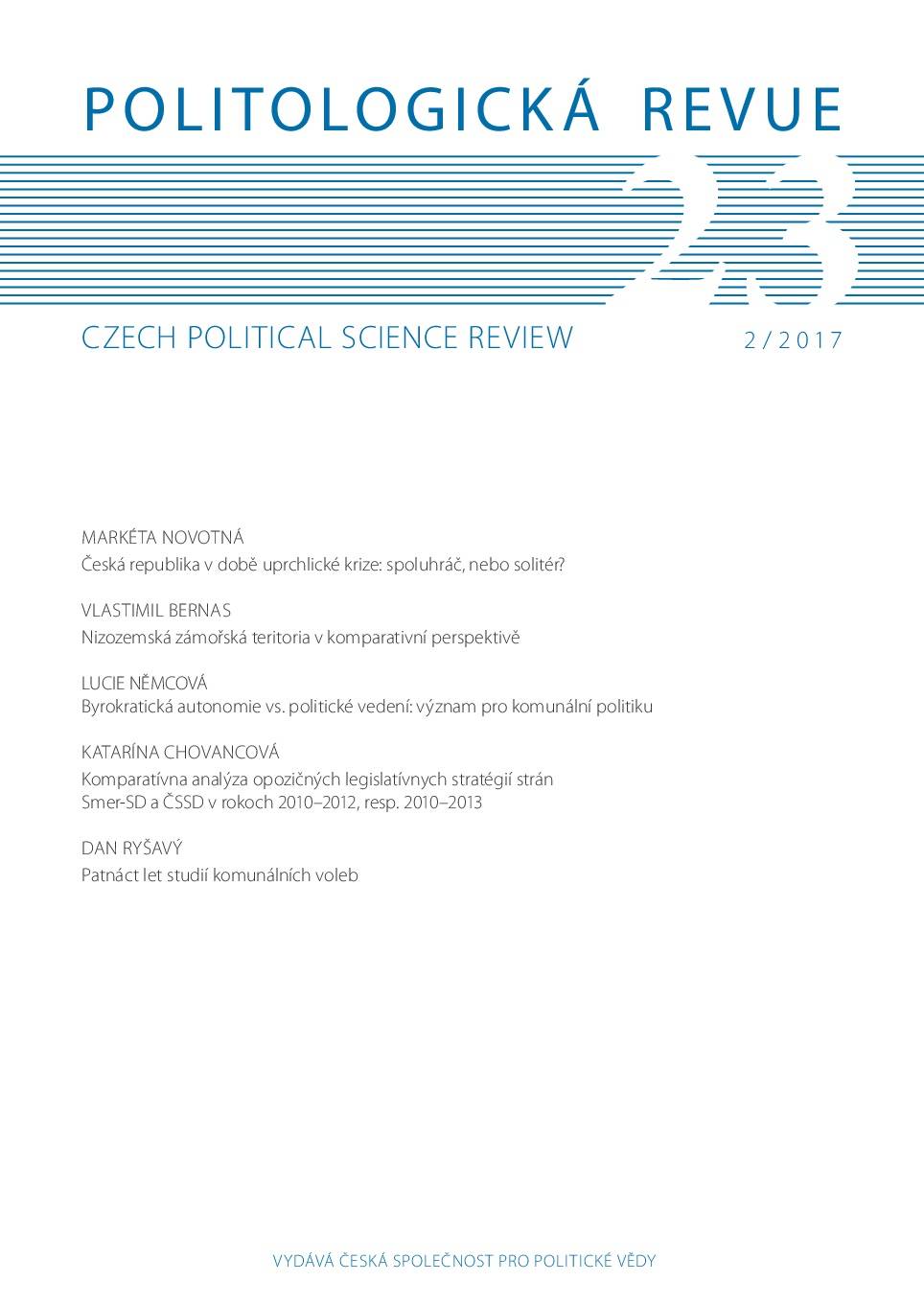Česká republika v době uprchlické krize: spoluhráč, nebo solitér?
The Czech Republic During the Refugee Crisis: Altruist or Egoist?
Author(s): Markéta NovotnáSubject(s): Politics / Political Sciences
Published by: Česká společnost pro politické vědy
Keywords: Czech Republic; quotas; refugee crisis; Schengen;solidarity economy;
Summary/Abstract: This study interprets the approach of the Czech Republic towards refugees and Schengen under the current refugee crisis. Although these topics are assessed most differently by the Czech political elites, they share the emphasis on solidarity. Indeed, exploring the role of solidarity by Czech political elites is the core of this article. Theoretically, the study develops the concept of international solidarity developed by Coicaud and Wheeler (2008) which enables one to analyse the seemingly inconsistent combination of solidarity and interests as used and performed by the Czech government. At the same time, it fills in the gap in research on the empirical impact of solidarity. Methodologically, the article combines an analysis of the main actors’ visions and behaviour and of the political discourse. The findings indicate that the Czech government does not act purely egoistically. Indeed, the leaders of the Czech governmental parties consider the needs of others while simultaneously taking account of their own interests. Hence, their behaviour can be evaluated as ‘solidarity led by interests’.
Journal: Politologická revue
- Issue Year: 23/2017
- Issue No: 2
- Page Range: 5-29
- Page Count: 25
- Language: Czech
- Content File-PDF

